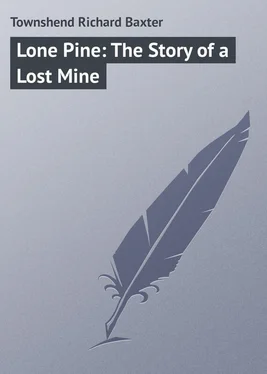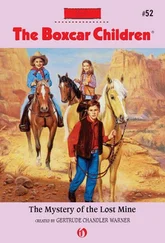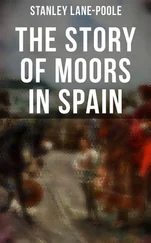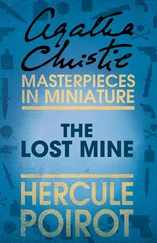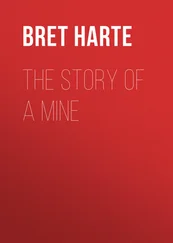Richard Townshend - Lone Pine - The Story of a Lost Mine
Здесь есть возможность читать онлайн «Richard Townshend - Lone Pine - The Story of a Lost Mine» — ознакомительный отрывок электронной книги совершенно бесплатно, а после прочтения отрывка купить полную версию. В некоторых случаях можно слушать аудио, скачать через торрент в формате fb2 и присутствует краткое содержание. Жанр: foreign_prose, foreign_adventure, на английском языке. Описание произведения, (предисловие) а так же отзывы посетителей доступны на портале библиотеки ЛибКат.
- Название:Lone Pine: The Story of a Lost Mine
- Автор:
- Жанр:
- Год:неизвестен
- ISBN:нет данных
- Рейтинг книги:4 / 5. Голосов: 1
-
Избранное:Добавить в избранное
- Отзывы:
-
Ваша оценка:
- 80
- 1
- 2
- 3
- 4
- 5
Lone Pine: The Story of a Lost Mine: краткое содержание, описание и аннотация
Предлагаем к чтению аннотацию, описание, краткое содержание или предисловие (зависит от того, что написал сам автор книги «Lone Pine: The Story of a Lost Mine»). Если вы не нашли необходимую информацию о книге — напишите в комментариях, мы постараемся отыскать её.
Lone Pine: The Story of a Lost Mine — читать онлайн ознакомительный отрывок
Ниже представлен текст книги, разбитый по страницам. Система сохранения места последней прочитанной страницы, позволяет с удобством читать онлайн бесплатно книгу «Lone Pine: The Story of a Lost Mine», без необходимости каждый раз заново искать на чём Вы остановились. Поставьте закладку, и сможете в любой момент перейти на страницу, на которой закончили чтение.
Интервал:
Закладка:
Following the example of his host, Stephens broke off a piece of tortilla, formed it into a scoop, and dipping up mouthfuls of the two messes alternately, thus consumed both bread and meat together. His host's approval of this course was delivered for the benefit of the kitchen as emphatically as it had been of the soup.
"It is very savoury meat," he shouted in his commanding voice, as soon as he had tasted two or three mouthfuls from each saucer, "very savoury; and they are excellent beans, delicious beans. Ah yes, Don Estevan," he continued to his guest, "what a pity it is that you have not someone to cook for you like this. To live all by yourself is so solitary, so triste ."
"Yes," answered the American quietly; "but how should I do when I went off to the mountains prospecting? I'm off again, I expect, shortly, to Colorado, you see; and what would I do with the cook then?"
"But why do you go?" queried his host. "Is it not time for you to leave off this wandering, roving life of yours and settle down? You are rich, everybody knows. You should marry, man, marry, and enjoy yourself"; he dropped into a more familiar tone, – "yes, marry before old age comes. You are a young man still, but age will be upon you before you know it."
Stephens, instead of giving a direct answer, made play with the tortilla and the stew. "I do begin to believe that cunning Backus was nearer right than I had any idea of," he said to himself. "I suppose this means that my good friend here wants to suggest that he'll find me a wife in short order if I say so – only, as it happens, he's a little too previous; I aint ready just yet." By this time he had consumed sufficient of the stew to set a dry man on fire, and utilised this fact to change the subject.
"Excuse me," said he, "but may I, by your permission, beg for a drink of water? This meat is delicious, but the chili makes me rather thirsty."
"Oh, certainly," cried his hospitable host; "but we have coffee coming. We have coffee here. Bring the coffee, Juana, at once," he shouted to the bondmaid.
"Water, please, if I may be so bold, Don Nepomuceno," pleaded Stephens, whose mouth was really burning.
"Yes, yes; bring water, then, Juana," cried the other, anxious to accommodate his guest. "Or would you not like a little atole? There is atole, too, plenty of it."
Atole is an old and favourite Mexican drink made of the finest Indian corn meal boiled till it becomes a thin gruel.
A jug of atole presently appeared with two cups, and the American was permitted to ease the burning sensations of his palate.
"Thank you," he said gratefully, putting down the cup; "that's very refreshing. Atole is a real good drink, Don Nepomuceno."
"Oh, yes," said the latter, "it's a good drink enough; but now that coffee has come in so much, it is used more by our handmaidens and the peons. All the well-to-do people here buy coffee, with sugar, now. We will have the coffee in in a minute. Tell them to make haste with the coffee, Juana. Did you never hear," he continued to Stephens, "the song that the musician of San Remo has made about Mr. Coffee and Mr. Atole? It is comic, you must know, very comic. You see Mr. Coffee comes from far, far away off in Tamaulipas, or farther still, to cut out his rival Mr. Atole. And then they meet, and the pair have a conversation, and Mr. Coffee tells poor Mr. Atole that he is doomed. Let me see, how does it go? Oh yes, Mr. Coffee begins, and he says to the other jokingly:
"'Como te va, amigo Atole?
Como has pasado tu tiempo;
Desde lejos hé venido
Para hacer tu testamento.'
"'How do you do, Mr. Gruel?
I fear you are rather unwell;
I've taken a mighty long journey
To ring your funeral knell.'
That's how it goes, Don Estevan. There's a great deal more of it; they go on arguing ever so long. We must get him in some time and make him repeat it all for you."
"You're most kind, I'm sure," said the American, wondering in himself the while how any human being could be amused by such a rigmarole concerning Messrs. Coffee and Atole. But there was no accounting for tastes; and he had found out that American humour did not seem at all funny to Mexican ears, while his recent experience in blasting the ditch had taught him that the mildest of American jokes might send red Indians on the war-path. A difference in the sense of humour goes down to the very roots of our nature.
They had finished dinner by this time, and the American, declining a cigarette, filled his pipe, and rising went over to his saddle and extracted from the "cantines" the packet which had come for him by mail. He brought this over to his host and offered it to him.
"Here, señor," said he, "is a little bag I will beg you to accept. It is from Denver; it contains some seed of alfalfa, that clover I told you about, that grows so splendidly in California and Colorado."
The Mexican was warm in his thanks as he untied the bag and took a sample in his hand.
"I told them to send me the best seed," said Stephens. "I think it ought to grow well in this country. You'd better sow it soon in a piece of your ploughed land, and irrigate it when it comes up."
"Yes, I will," said the Mexican. "I'll have it planted to-morrow in the land I am preparing for corn. Come and see my seed corn; I am not content with this common blue corn of the Indians. I have white corn with big ears that I mean to sow. Come along to the storeroom and look at it."
He led the way, and as they passed through the door they almost stepped over Manuelita, who was seated on the ground just outside, busy cleaning a large basket of frijoles. Stephens paused idly to look at what she was doing, while her father bustled around, noisily demanding of his sister where the key of the storeroom was. The girl's task struck him as terribly tedious. She took up a small handful of beans at a time and picked out one by one the little bits of stone that had got in when the threshing was done, in the good old style, by the feet of the wild mares on a floor of clay and gravel concrete.
"That's a long business you're in there," he remarked sympathetically.
"Yes," she answered, glancing up at him with a shy smile, "it takes time," and she bent her eyes on her hand again so as not to interrupt her work. He caught the beautiful smooth outline of her cheek with the long dark lashes showing distinct against it.
"You don't mean to say you have to do the lot that way, picking out all those bits of rock one at a time?" he asked.
"Oh, but yes, of course," she answered. "You would break your teeth if we did not take them out before we cook them."
"But," he rejoined, his practical mind revolting against waste of labour, "it'll take you a good hour to do that lot the way you're doing it, and you could do it better in three minutes." His tone was oracular.
"I don't think it's possible," she said, "unless you had a witch to do it. There is an old woman, the mother of Pedro, that we get sometimes, but she often leaves some in, and then my father hurts his teeth. The people here call her a witch, but she would take three hours instead of three minutes."
"Well, I'm no witch," said he, "though the Indians here wanted to play me for one this morning. But you give me a pan – a milk-pan'll do – and I'll show you."
The pan was brought, and he put in the beans and poured in water enough to set them a-swim. He gave the pan a few deft twirls and shook it from side to side.
"This is the way we wash gravel to get the gold, señorita," he said, as he set it down. "The rocks are all at the bottom of that pan now, you bet. If you'll kindly give me another pan to put the beans into," he went on, "I'll prove it to you."
The girl hastened to bring a second pan and put it beside the first, and in doing so their hands touched.
Читать дальшеИнтервал:
Закладка:
Похожие книги на «Lone Pine: The Story of a Lost Mine»
Представляем Вашему вниманию похожие книги на «Lone Pine: The Story of a Lost Mine» списком для выбора. Мы отобрали схожую по названию и смыслу литературу в надежде предоставить читателям больше вариантов отыскать новые, интересные, ещё непрочитанные произведения.
Обсуждение, отзывы о книге «Lone Pine: The Story of a Lost Mine» и просто собственные мнения читателей. Оставьте ваши комментарии, напишите, что Вы думаете о произведении, его смысле или главных героях. Укажите что конкретно понравилось, а что нет, и почему Вы так считаете.
